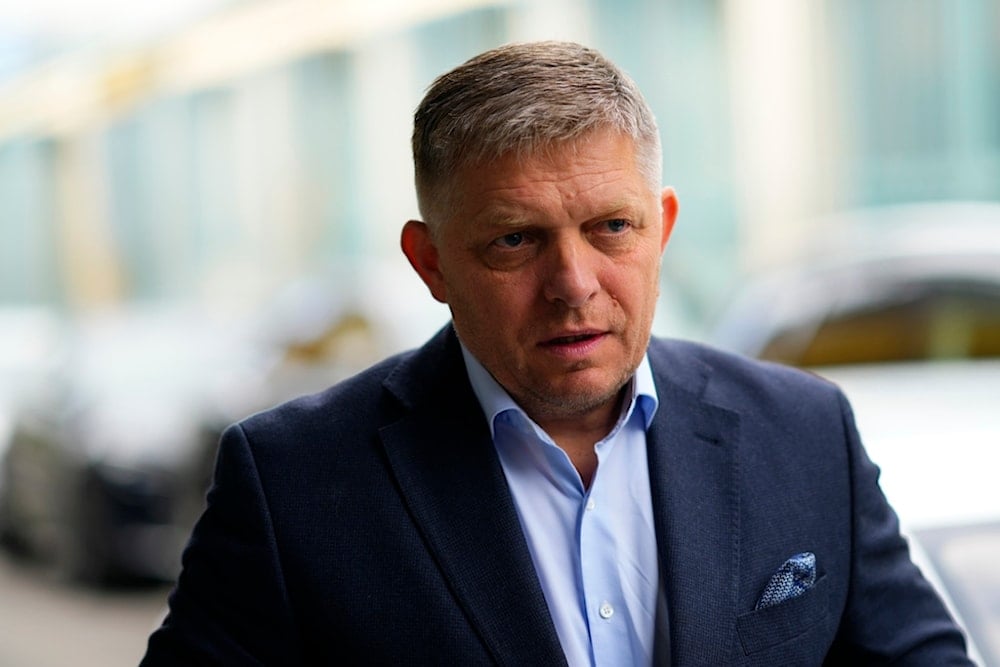Slovak PM slams media for ignoring Ukraine role in Nord Stream attack
The Slovak leadership is maintaining close communication with all companies involved in oil and gas supplies to ensure the stability of energy resources for his country.
-

Chairman of SMER-Social Democracy party Robert Fico arrives at his party's headquarters in Bratislava, Slovakia, Sunday, Oct. 1, 2023 (AP)
Slovak Prime Minister Robert Fico stated on Saturday that Slovak media outlets are avoiding coverage of the Nord Stream attacks, despite reports suggesting possible Ukrainian involvement.
"How is it possible that the Slovak media do not cover the Nord Stream attacks? How is this possible? We all know what happened and who did it. Today it is already clear that it was some Ukrainian group that blew up the pipeline. This is an attack on strategic energy infrastructure, [European Commission President] Ursula von der Leyen said that the consequences should be the most severe. Why are we not talking about it? Oh, because [it is] Ukraine," Fico told the Saturday Dialogues TV show.
Fico criticized the European Commission for not assisting in resolving the issues related to the transit of oil and gas through Ukraine. Despite this, Slovak authorities are actively working to maintain the Ukrainian route as their primary channel for energy supplies, Fico said.
Read more: Fico's condition stabilized but 'very serious': Slovak Deputy PM
"The European Commission does not care at all and has left it [the solution of the problems] to us, so that we can solve these problems individually with Ukraine, Russia and Azerbaijan, so that we get both gas and oil. I am in close contact with the Ukrainian Prime Minister [Denys Shmyhal], with the Azerbaijani leadership," Fico said.
Fico also noted that the Slovak leadership is maintaining close communication with all companies involved in oil and gas supplies to ensure the stability of energy resources for the country.
"We will do everything to ensure that the Ukrainian route continues to be used as the main transit route for oil and gas for Slovakia," he said.
In late August 2024, Ukraine announced that it would stop the transit of Russian gas to EU countries once the current transit agreement expires on January 1, 2025. Over the past year, Russian energy giant Gazprom has supplied around 15 billion cubic meters of gas annually through pipelines running across Ukraine, which accounted for about 4.5% of the EU's total gas consumption. Slovakia, Hungary, Austria, and Italy are the primary recipients of gas via this route.
Read more: Russia urges Germany to fully disclose intel on Nord Stream bombings
Since the start of the war in February 2022, reducing dependence on Russian energy has been a top priority for the EU. The bloc has been phasing out Russian fuel imports, which contributed to a sharp rise in gas prices across the region.
Additionally, the Nord Stream and Nord Stream 2 pipelines, built to transport gas from Russia to Germany via the Baltic Sea, were severely damaged by explosions in September 2022. Nord Stream AG, the pipeline operator, described the damage as unprecedented, and the timeline for repairs remains uncertain.

 3 Min Read
3 Min Read








